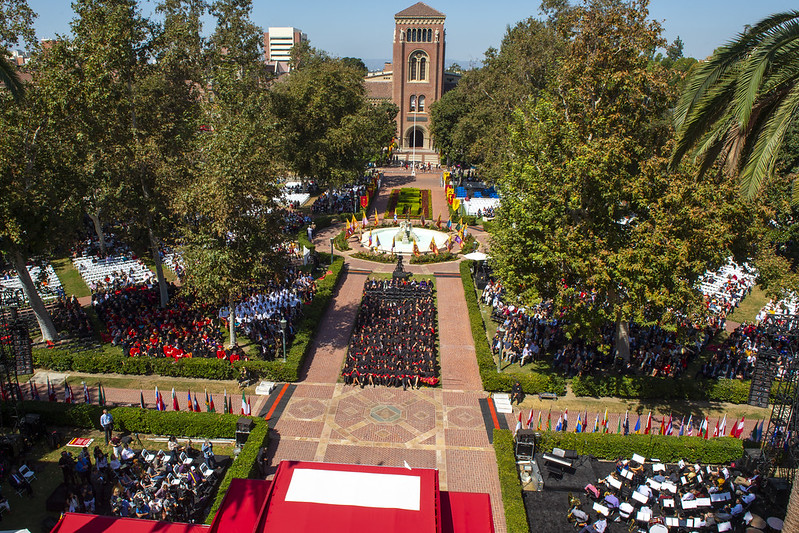Provost Zukoski kicked off this session, explaining that he believes that USC faces deep cultural challenges, requiring us to re-examine the values and norms that guide our behavior and decisions at every level of the organization. This culture change will be led by the President and Provost, but it also must be driven by faculty, staff, and students. We have begun this change effort with a discussion of values: this may seem like a “soft” topic – but these discussions are hard and their results will be consequential in guiding reforms to a wide range of university systems and processes.
Culture consultant Carol Faull and Stacy Giwa (Vice President Culture, Ethics and Compliance) then gave a presentation showing some of the results of the Values Poll for USC as a whole – how faculty, staff, and students characterized our current culture and the culture they want for USC. Those results show that faculty were generally the most critical of the current culture. Carol also showed more detailed results for faculty, breaking it down into tenured/tenure track vs RTPC, and different gender identity and race-ethnicity groups. We saw that tenure/tenure track faculty were even more critical of the current state than RTPC, and that faculty who declined to state their race-ethnicity or gender identity were extremely critical of the current state. Among faculty there was, however, considerable convergence on the features of the desired culture, similar to that between faculty, staff, and students. After the general presentation, the Retreat participants broke into smaller groups to discuss the meaning of some of the values that scored particularly high in the desired culture, and to identify practical changes to our systems and procedures that we could make to support the desired changes in behavior and values.
At the end of the day, based on the breakout discussions, we identified a dozen major systems at USC that urgently need to change and/or be strengthened including: (1) annual reviews and incentive systems; (2) training for mid-level leaders on both academic and administrative sides; (3) a centralized and coherent approach to internal communications; and (4) stronger systems of faculty mentorship.
Paul Adler (Academic Vice-President) concluded the session by explaining that similar discussions are happening across the university, and in April the culture team will be distilling the results for presentation to the university leadership.
Paul Adler
Marshall School of Business


